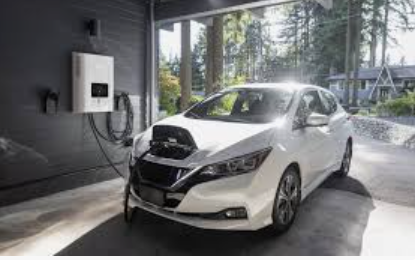Beijing said Friday it had filed an appeal with the World Trade Organisation over the European Union’s imposition of additional tariffs on imports of electric vehicles from China.
In July, the EU slapped extra provisional duties of up to 38 per cent on Chinese EVs after its executive arm concluded in an investigation that they were unfairly undermining European rivals.
“On August 9, China appealed to the World Trade Organisation’s dispute settlement mechanism over the EU’s temporary anti-subsidy measures on EVs,” a spokesperson for the country’s commerce ministry said in a statement.
The ministry said the appeal aimed to “safeguard the development rights and interests of the electric vehicle industry and cooperation over the global green transformation”.
“The EU’s preliminary ruling lacks a factual and legal basis, seriously violates WTO rules, and undermines the overall situation of global cooperation in addressing climate change,” it said.
“We urge the EU to immediately correct its wrong practices and jointly maintain the stability of China-EU economic and trade cooperation as well as EV industrial and supply chains.”
Brussels said it took note of Beijing’s move but was “confident” its probe and provisional measures were WTO-compatible.
“The EU is carefully studying all the details of this request and will react to the Chinese authorities in due course according to the WTO procedures,” a European Commission spokesperson told AFP.
In Geneva, WTO spokesman Ismaila Dieng said the organization had received the Chinese request.
“Further information will be made available once the request has been circulated to WTO members,” Dieng added in a statement.
Definitive duties are due to take effect by November for a five-year period, pending a vote by the EU’s 27 states.
Trade rifts –
China and the EU have butted heads in recent years on a range of issues relating to trade, technology, human rights and national security.
But Brussels faces a delicate balancing act as it tries to defend Europe’s crucial auto industry and pivot towards green growth while also averting a showdown with Beijing.
The EU has launched a raft of probes targeting Chinese subsidies for solar panels, wind turbines and trains, while Beijing has begun its own investigations into imported European brandy and pork.
The United States has already hiked customs duties on Chinese electric cars to 100 per cent, while Canada is considering similar action.
China’s emergence as an EV powerhouse stems in part from a targeted industrial strategy, with Beijing pouring vast state funds in recent years into domestic firms as well as research and development.
The approach has given Chinese firms a critical edge in the race to provide cheaper, more efficient EVs over leading European automakers, which have not always enjoyed such state largesse.
According to the Atlantic Council, Chinese sales of EVs abroad rose 70 per cent in 2023, reaching $34.1 billion.
Almost 40 per cent went to the European Union, the largest recipient of Chinese EVs.
AFP.



